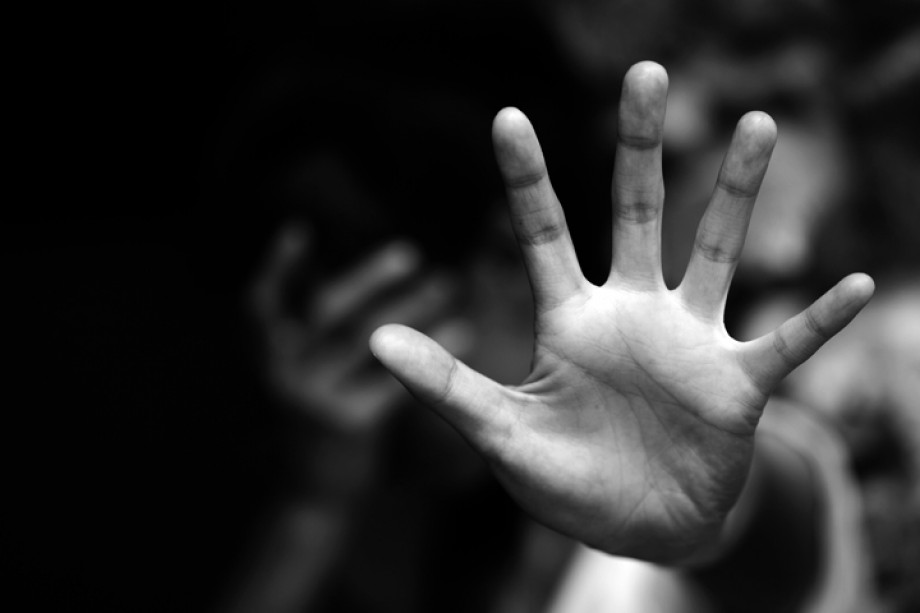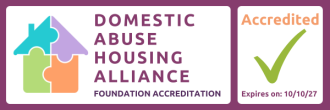
In an emergency, always dial 999 - if you are unable to speak always press '55' when prompted to confirm an emergency.
No-one should live in fear of abuse or violence from a spouse, partner or someone they are personally connected to (member of their household – they don’t need to be in the same household).
The definition of domestic abuse is any incident or pattern of incidents of controlling, coercive or threatening behaviour, violence or abuse between those aged 16 or over who are or have been intimate partners or family members regardless of gender or sexuality. This includes, but is not limited to the following types of abuse:
- Psychological
- Physical
- Sexual
- Financial
- Emotional
- Verbal
- Harmful practices - find out more below
Domestic abuse - national, local and specialist support
No matter your gender, sexuality, age or situation, there is support available for everyone.
National and specialist domestic abuse support
Domestic abuse: How to get help easy read guidance (pdf)
Torus have a dedicated Domestic Abuse Housing Team who can provide advice to Torus tenants at risk of or experiencing domestic abuse and offer housing related support. Torus tenants can contact us for further information and support on 0800 678 1894 or email info@torus.co.uk.
If you are not in the areas below, you can find out more about local support from your local council, find your local council here www.gov.uk/find-local-council
Warrington
St Helens
Liverpool
Harmful Practices
Harmful Practices occur across all sexes, sexual identities and genders and are not unique to a particular culture or religion. These are forms of domestic abuse, but unlike ‘typical’ domestic abuse, family members and the extended family are often involved. Harmful traditional practices include:
- female genital cutting/mutilation (FGM)
- so called ‘honour’ based violence and ‘honour’ killings
- forced marriage
- breast ironing also known as breast flattening
- Controlling behaviour is a range of acts designed to make a person subordinate and or dependant by isolating them from sources of support, exploiting their resources and capacities for personal gain, depriving them of the means needed for independence, resistance and escape and regulating their everyday behaviour.
- Coercive behaviour is an act or pattern of acts of assault, threats, humiliation and intimidation of other abuse that is used to harm, punish or frighten their victim.
- Forced Marriage is a hidden practice where due to its nature the full scale of the issue is unknown and is most cases involve young women and girls aged between 16 and 25.
- Female Genital Mutilation (FGM) involves procedures that include the partial or total removal of the external female genitalia for non-medical reasons and is a criminal offence under the Female Genital Mutilation Act 2003.
- Honour based Violence (HBV) is an act of violence explained by the abuser as being committed in order to protect or defend the honour of the family/community.
Remember:
Domestic violence and abuse can be actual or threatened and can happen once every so often or on a regular basis.
It can happen to anyone, in all kinds of relationships.
People suffer domestic abuse regardless of their social group, gender, class, age, race, disability, sexuality or lifestyle.
The abuse can begin at any time – in new relationships or after many years together.
Children are affected by domestic abuse both in the short and long term.
In an emergency, always dial 999 - if you are unable to speak always press '55' when prompted to confirm an emergency.
If you are worried that you, or someone you know, is in an abuse relationship, you must report it.

Help for abusers
Abuse is a learned behaviour, which means it can be unlearned.
If you have recognised your own abusive behaviour and want to change, free, confidential and non-judgemental support is available.
Signs of Domestic Abuse
There are different kinds of abuse, but it's always about someone having power and control over you. If you answer yes to any of the following questions, you might be in an abusive relationship.
Does your partner ever:
- belittle you, or put you down?
- blame you for the abuse or arguments?
- deny that abuse is happening, or downplay it?
- isolate you from your family and friends?
- stop you going to college or work?
- make unreasonable demands for your attention?
- accuse you of flirting or having affairs?
- tell you what to wear, who to see, where to go, and what to think?
- control your money, or not give you enough to buy food or other essential things?
- monitor your social media profiles, share photos or videos of you without your consent or use GPS locators to know where you are?
Does your partner ever:
- threaten to hurt or kill you?
- destroy things that belong to you?
- stand over you, invade your personal space?
- threaten to kill themselves or the children?
- read your emails, texts or letters?
- harass or follow you?
The person abusing you may hurt you in a number of ways. Does your partner ever:
- slap, hit or punch you?
- push or shove you?
- bite or kick you?
- burn you?
- choke you or hold you down?
- throw things?
Sexual abuse can happen to anyone. Does your partner ever:
- touch you in a way you do not want to be touched?
- make unwanted sexual demands?
- hurt you during sex?
- pressure you to have unsafe sex – for example, not using a condom?
- pressure you to have sex?
Have you ever felt afraid of your partner?
Have you ever changed your behaviour because you're afraid of what your partner might do?
If you think you may be in an abusive relationship, there are lots of people who can help you.
Target Hardening - Making your home safer
Torus can support victims and survivors of domestic abuse to feel safe in their own homes with the installation of additional security equipment to the property. If you are a Torus tenant and feel you would benefit from some security measures to feel safe at home due to domestic abuse, please contact us on 0800 678 1894 or email info@torus.co.uk.
Noise Nuisance or Domestic Abuse?
Torus takes reports of anti-social behaviour (ASB) and noise nuisance seriously. However on some occasions, what may seem like a noise issue could be domestic abuse. Domestic abuse should not be confused with ASB it is a form of abuse which can result in serious harm, injury or even death. It affects adults as well as children.
If you believe you witness or hear what you believe is domestic abuse, we ask you to be a good neighbour and help to keep others safe by reporting it straight away to the Police, DO NOT wait to report it to Torus as noise nuisance. This could lead to delays in victims receiving the right support quickly.
Remember, be a good neighbour, report the crime and you may prevent someone being seriously harmed or worse.